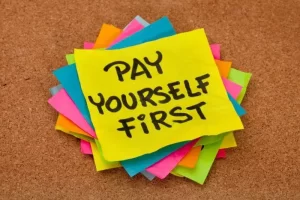
Most common entrepreneurial mistakes to avoid can slow the growth of a company, or worse yet, lead to its death. With so many things going on inside a business at any given time. As an entrepreneur, you’re going to make mistakes.
It’s inevitable but it doesn’t mean that you should stop trying or that you’re a bad person. It just means that there are things in your business plan, marketing strategy, pricing scheme or other aspects of the company you need to adjust.
The best thing is to learn from your mistakes early on. Not let them spiral out of control into something more damaging later on in the life cycle of your company. And if they do happen anyway? Well then at least now you know what caused them and how to avoid repeating them!
What is entrepreneurship
According to Wikipedia,
Entrepreneurship is the creation or extraction of value.With this definition, entrepreneurship is viewed as change, generally entailing risk beyond what is normally encountered in starting a business, which may include other values than simply economic ones.
The following are 5 Most Common Entrepreneurial Mistakes to avoid:
1. Making Your Margins Too Small
Those who have been successful in business know that it’s important to have enough money to cover overhead costs and be able to reinvest in the company with potential new opportunities.
Many entrepreneurs make the mistake of setting margins too low. Thinking that they will be able to afford it when they start to expand their operations. The problem is that in order for this approach to work, you need a business model with unlimited potential for scaling.
It’s better right from the outset to set the right profit margin. Low margins become a roadblock later on as your company starts demanding more and more resources.
For example, not having enough money saved due to low margins means that you can’t hire freelancers or buy any marketing software. Having to raise your prices in the process of scaling will make your customers angry therefore reduce or slow down sales.
Starting out by focusing on high margins and reinvesting profits provides sustainability and long-term revenue growth
2. Ignoring your customers’ needs or expectations

Ignoring customer needs or expectations is one of the most common mistakes entrepreneurs make. It’s important to identify what customers want and provide it for them.
You can do this by conducting market research, listening carefully to your clients, and doing what you say you will do when you promised it would be done.
There are four types of customer needs;
- Functional needs
- Needs for personal attention
- Convenience needs
- Status symbol needs
Relating to these four different types of customer needs, there are many factors that an entrepreneur must consider when deciding how their product should be priced.
The factors are
- Raw materials, production time, wages for workers
- Transportation costs, energy costs
- Unit cost of the materials used in making the product
- Markup rate on the sales price versus selling price to consumers (profit margin)
- Market demand for the product that is being sold in order to determine whether or not it is profitable
Keep in mind that if you don’t listen to your customers’ wants and needs. They won’t continue using your product or service- meaning less revenue for your company!
3. Failure to manage cash flow properly
Another entrepreneurial mistake to avoid is failing to manage cash flow properly. Even a small company can experience cash flow problems at some point in its lifetime.
Larger companies often have so many reserves that they can pay all of their bills when they come due.
A company’s cash flow management plan should include how the business will handle times when there isn’t enough cash on hand to cover all of its expenses. It should also include how to handle debt in the business.
Some businesses borrow money from their owners or financial institutions, while others use credit cards or lines of credit.
Cash flow management is important for your small business and its future success. By planning ahead, you can avoid problems, such as payment delays and loss of business.
This is why you should make sure that your company has the cash to ensure it can pay its bills and cover other expenses.
The best way to do this is by having a budget and trying to work on your margins to make sure they’re not too small. When you have the right amount of cash in the bank, then you can be less nervous about running into these problems.
Another thing to watch out for is the competition. If you don’t have enough money, you could lose your customers if someone else offers them a lower rate or product.
4. Lack of market research

Market research is the process of identifying—and studying—potential consumers’ wants and needs.
Here are some typical mistakes entrepreneurs make regarding market research, along with ways to avoid them:
Entrepreneurs who consider it unnecessary to conduct market research often end up making costly decisions in terms of time and money.
I. Not Understanding the Market
Market research can help you understand who your target customers are and what they need from a product (in other words, market demand). Increasingly, companies use customer-centred data analytics to identify trends and patterns that can be leveraged for competitive advantage.
Conducting research is crucial to ensuring that the business is successful and will allow you to be competitive.
It may not always be easy or straightforward, but in the long term, it will be worth it in order to keep the business growing. It helps you understand your target audience’s needs and often times their wants.
Gathering this data is important because if you don’t know which products or services are wanted. Then you won’t have enough of them at the right price for customers.
Research also allows you to see what is currently popular with consumers and what may not be popular with them.
While marketing strategies can certainly guide a company. It’s important not to neglect the input from potential customers. The goal is not only to promote a product or service but also to understand how potential customers perceive it before mass production begins.
It’s important that companies conduct market research before launching – large-scale operations to ensure that they are able to meet their customer’s demands.
II. Brand Identity

Your brand identity should be clear, concise and easily identifiable. Many companies make the mistake of trying to appeal to everyone. But most consumers won’t take a risk on something they can’t identify with.
Developing a distinct brand identity gives your company an edge in the marketplace. It also conveys better what you offer compared to competitors who may be offering similar products or services.
III. Pricing too high
This is a classic example of a mistake that a lot of entrepreneurs make. The more you charge for a product or service, the smaller the margins. It’s usually better to charge less than more.
A key element is the long-term value of your product or service – rather than how much you can get on a single sale.
It’s one of the most common entrepreneurial mistakes to avoid when starting out. It’s also a mistake to make your margins too small.
You may want to take some risks with your pricing, but if you’re risking losing money on every sale, you’re better off lowering prices.
IV. Customer Service
An often-forgotten aspect of the business is the importance of good customer service. Many companies use their profit margin as an excuse for poor customer service.
While this strategy may be profitable in the short term. It will not last in the long run if your company’s name is synonymous with poor customer service.
V. Not Understanding the Competition
Finally, when launching a new product or service. it’s important to understand your competition and how they operate before developing marketing strategies and distribution channels.
Paying attention to both existing and potential competitors allows you to understand where you can position yourself in the market. Without going head-to-head with an established competitor.
Related
- Gig Economy Side Hustles: 18+Best Work from Home Jobs to Make Extra Income
- 20 Best Small Business Ideas to Start Under $100 – Low-Cost Start-Up Gigs
- 26 + Profitable Home Based Business Ideas For Moms to Make Money
- Home Based Business: Top 10 Reasons Why Starting a Business from Home has Many Benefits
- The 22 Best Books Every Aspiring Entrepreneur Should Read
5. Most Common Entrepreneurial Mistakes to Avoid – Ignoring or Forgetting About Competition
Every business needs to make sure they are paying attention to their competitors. You need to know what you’re up against and be able to respond quickly and accordingly.
Here are some of the common mistakes entrepreneurs make when they aren’t paying attention:
If you forget competition, you may not be able to adequately address the needs of your customers. It’s important to keep an eye on your competition so you don’t fall behind – end up like Blockbuster or Borders Books.
You might not like that your competitor is doing well. But you need to know about them as a source of inspiration and ideas. There’s nothing wrong with borrowing what they’re doing–just make sure it works for you.
6. Not Spending Enough Cash or Sometimes Spending Too Much Cash
One of the most common mistakes that entrepreneurs make is spending too much cash. Too often, entrepreneurs will spend a ton of money to start a business and not understand how much it’s going to cost to stay afloat.
On the other hand, entrepreneurs may also find themselves not spending enough cash.
Common reasons for not spending enough cash are:
- Fear
- The belief that they don’t need it
- Some ether irrational belief
The first thing you should do is figure out your monthly break-even point. The amount of revenue you need just to cover costs. You’ll need to forecast sales AND expenses to figure this out!
The first step is doing a thorough market analysis. This involves research on your target customers including demographics, psychographic factors, and others that will help you understand who your customer is.
Common business types that start this way are service businesses or consulting businesses. Because it’s usually not possible to start a manufacturing business with no money (unless you’re making something really basic like T-shirts).
Once you have a good understanding of your customers, the next step is to figure out how much it costs to run your business.
What can you afford? What do you need? What are the best ways for you to get started without spending money on things that are unnecessary?
7. Making Hiring Decisions Based on Cost Analysis

Making hiring decisions based on cost is the most common entrepreneurial mistake to avoid because it will lead to poor hiring decisions and a waste of resources. It’s important because you might end up paying more in the long term than for someone else who is more qualified and needs the job.
Additionally, costing too much money will make it difficult to attain and maintain customers and may lead to financial losses in the future.
The costs that are directly related to the position should be considered when making a hiring decision. If needed, ask questions about cost-related items such as insurance costs, RRSP or 401k costs. And other benefits not included in the salary description such as additional time off.
8. Most Common Entrepreneurial Mistakes to Avoid – Thinking You Do It All
The first mistake that many entrepreneurs make is to think that it’s all on you. The truth is that it takes a whole team to build a successful company. Without the right people in place, you will never reach your full potential.
Secondly, many entrepreneurs aren’t willing to delegate when they should. It’s important to have a clear idea of what skills and capabilities you need for your company. Then find qualified employees with those skills and give them clear parameters for their roles and responsibilities.
Lastly, not having a plan or vision for what success looks like can lead to disaster. You need to take the time to establish performance metrics. Also, steps required in the process of achieving them so you can track your progress.
Make sure you stay on top of what’s happening with your employees and that they know their goals and responsibilities as well.”
9. Common Entrepreneurial Mistakes to Avoid – Not Understanding the Business Model
Another first-time entrepreneurial mistakes also include not understanding the business model that you are entering and taking shortcuts, which results in an unsustainable company.
Choosing the wrong business model can affect both the quality and longevity of your business’s success. You’ll likely make less profit if you choose a “low-end” model, even if you’re able to sell more products because your margins will be too small.
That means that you’ll always struggle financially because the amount of money you’re making per unit will be too little. This is due to increased costs on things like rent, utilities, and labour – all essential for a functioning business.
10. Common Entrepreneurial Mistakes to avoid – Not hiring a financial advisor before you start
Sometimes it is difficult to know what we don’t know and this does apply in some instances when it comes to finances and starting a business. You need someone with experience and knowledge in this field.
Not one just because you have been friends for years or have been randomly assigned from being on the board of directors at work.
The biggest mistake entrepreneurs make is not having their accountant do their bookkeeping. It’s common for people to be so busy running the company that they just don’t want to deal with it.
An experienced bookkeeper has years of experience managing records for companies. While bookkeeping can include failing to balance cash, not recording cash transactions in the books, not recording inventory price changes correctly, and not handling discounts and other adjustments properly.
A good accountant’s task is to maintain the company’s books, including monthly forecasting and budgeting, quarterly financial reporting (including IFRS), preparation of annual plans and forecasts.
Conclusion To Most Common Entrepreneurial Mistakes to avoid
The most common entrepreneurial mistakes to avoid are easy to make if you’re not aware of them. This article has provided a list of the 10 most common errors that many entrepreneurs fall prey to when starting their own businesses. If these sound like behaviours or habits you have.
It may be time for you to self-reflect and evaluate your current situation in order to find out how best to move forward with your company. Without repeating the same mistakes again. While every entrepreneur will experience at least one of these pitfalls on their journey.
Being able to identify what they are as soon as possible can help eliminate any unnecessary stress from the process. So that more enjoyable aspects such as building relationships and creating products can take center stage instead.
































1 thought on “What are 5 Most Common Entrepreneurial Mistakes to avoid”
Remarkable issues here. I am very glad to look your post.
Thank you so much and I am taking a look forward to contact you.
Will you kindly drop me a e-mail?